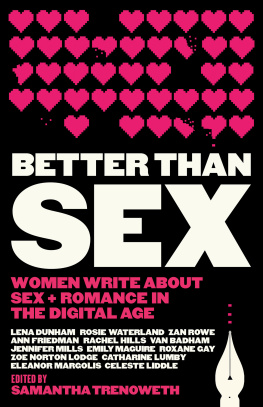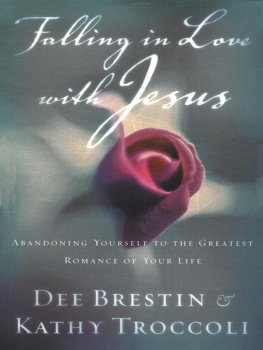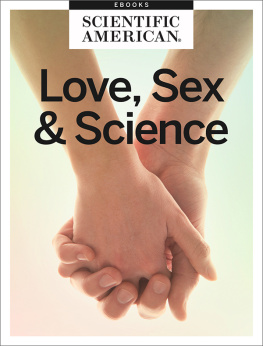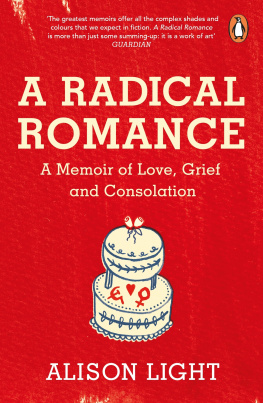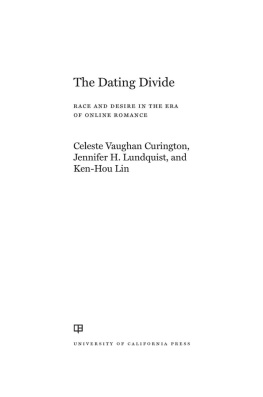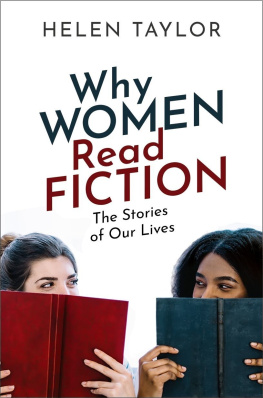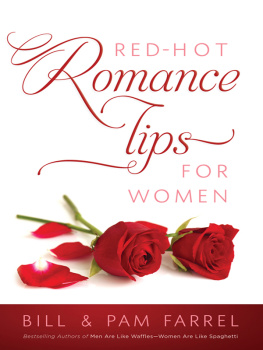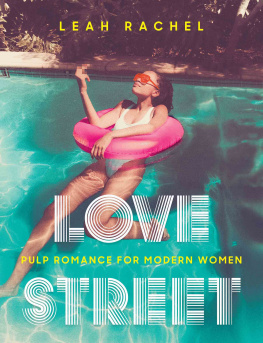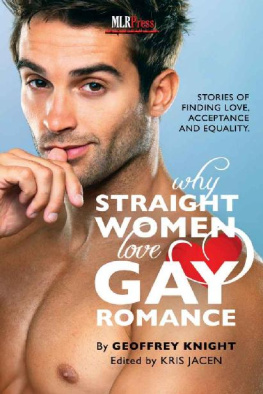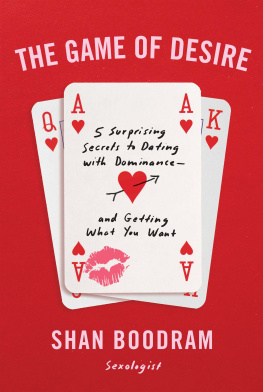Samantha Trenoweth has written five books, including The Future of God, A Big Life (with Jenny Kee) and 1001 Australians (with Toby Creswell). This is her third anthology for Hardie Grant. The first, Bewitched and Bedevilled: Women write the Gillard years, came together during the final months of Australias first female prime ministership. Her second anthology, Fury, examined issues around women, power and violence. Samantha has written for The Sydney Morning Herald, The Saturday Paper, The Guardian, The Australian, Rolling Stone and the ABC about politics, religion and popular culture, but rarely (if ever) about romance. The digital age has affected her love life only insofar as it keeps her boyfriend amused with online Scrabble.
CONTENTS
I LOST (OR DISMISSED) my virginity while listening to Yess Tales From Topographic Oceans (both LPs) in a fog of patchouli and candlelight, under a batik bedspread, with a vegetarian waiter who would later become an ambient musician and move to Byron Bay. It sounds like a clich but it felt pretty romantic at the time.
Romance runs strong in my family. My great-grandmother rode a camel through 500 kilometres of desert for love. My father proposed to my mother a dozen times, ever more elaborately, and finally successfully after a screening of Pal Joey. My second cousin wrote Love Actually. He actually did, and theres nothing more romantic than that.
Perhaps this explains why I felt compelled to assemble this group of womenall wise or at least experienced in matters of the heartand ask them to toss around the notion of falling in love in whats become known as the digital age. Theres much talk these days about how technology and globalisation, in conspiracy with virulent sexism, are changing the way we love, but are they really? I wanted this book to explore that.
Looking back, I think the idea snuck up on me, years ago, while I was watching the first episodes of Girls. They were brilliant and clumsy and endearing and excruciating, and also unsettling. These comings of age felt so ungainly and absolutely unromantic, but was that a good or a bad thing? For all their matter-of-factness and bravado, were those girls any more or less empowered in matters of the heart (or in matters of simple pleasure) than I had been at their age?
So the idea began with Girls, and for that and other reasons I am massively excited that Lena Dunham has agreed to contribute to the book. Her response to marriage equality is honest and personal and ever so slightly embarrassingly self-obsessed (which is exactly the Lena Dunham weve come to know and love).
Marriage was certainly a preoccupation of this group of women, which did surprise me. Roxane Gay, Emily Maguire and Lena Dunham all touched on marriage in their chapters, and none dismissed it out of hand, except Celeste Liddle, whose musings on the relative values of autonomy and individuality versus relationship and community in her life as an Aboriginal woman make for one of the most interesting (and certainly the most rebellious) chapters in this book.
A less surprising preoccupation that emerged, as the contributions rolled in, was online dating. For years, it seems, soothsayers of one stripe or another have been predicting romantic end times. The popular catalyst, at present, is online dating, which seems able to incite moral panic and feminist outrage in equal measure. But is it really responsible for the kind of dating apocalypse of which everyone from Vanity Fair to the religious right has warned? Our contributors would, by and large, say nothough, for some, its a cautious no.
Zan Rowe delves into online and long-distance relationships, and the value of intimacies that grow out of the written word. Van Badhams dating app odyssey ended in an IRL epiphany, while Maggie MK Hesss is still a work in progress, and one that she finds liberating.
These womens tussles with online love couldnt be more diverse and I think the message hereand one thats worth remembering in the face of moral outrage and panicis that there is no one online dating experience, just as there is no one formula for hooking up or falling in love in our off-screen lives. The online realm reflects the diversity of the people who daily create and recreate it, and it can reflect the best and the worst of us.
Lucy Le Masurier tangled with the latter when she and her friends stepped in to defend a woman whose Tinder profile was shared and shamed by a gang of internet trolls. In taking those digital threats to the IRL justice system, she and her friends may well set a legal precedent. One of the perpetrators has subsequently been charged with using a carriage service to menace, harass or cause offence. And whether he is finally convicted or not, the women who reported him have sent a clear message that online actions have consequences beyond the digital realm.
Le Masurier quotes Dr Emma Jane, a senior lecturer at the University of New South Wales, who is currently researching cyberhate. She says: Were not doing things online, were just doing things. And thats a crucial theme here. Were not falling in love online (which is somehow less authentic than falling in love in any other space), we really are just falling in love. Equally, there is no reason that threatening violence should be less serious when the message is delivered via social media than when its delivered by telephone or in a crowded bar. Le Masuriers chapter indicates that this notion that actions in the online realm are somehow separate from (and quarantined from consequences in) the real world is screaming for reassessment.
Another contributor who looked at bridges across the digital/IRL divide was Catharine Lumby, who spent a year in Australian schools, asking teenagers to talk to her about sex, love and the media. She was struck by the overall media and internet savviness of the groups, and particularly by the clear differentiation they made between screen sex and sex with a physical partner. That they had very different expectations of the two speaks against dire predictions of a porn-driven romantic apocalypse. However, Lumby also found that traditional gendered roles still impact boys and girls lives (romantic and otherwise) in a whole range of limiting ways.
Rosie Waterland and Rachel Hills took different approaches to a similar theme. They were both interested in the ways in which those gendered attitudes lead to objectification, and the ways in which that objectification can in turn impact upon a womans ability to conceive of herself as a subject, and as a sexual subject at that. Waterland, Hills, and Celeste Liddle, too, all write very powerfully and personally about the ways in which the size of her waist, the colour of her skin or the set of her teeth can affect a womans ability to feel, not just comfortable, but sexually and romantically enfranchised, in her own skin.
On the subject of sexual enfranchisement, Zoe Norton Lodge addresses the notion of sex for pleasure in her meeting with a sex shop sensei and the quest for the perfect dildo.
As Cole Porter and Ann Friedman surmise, birds do it, bees do it, even educated mice and chimpanzees do it. Friedman puts forward the case that women like sex but they dont like being socially punished for it. And they dont like the notion that, in this one aspect of their lives, they should willingly relinquish power, choice, agency and volition in favour of some madly confusing, highly gendered role-play of romance.

